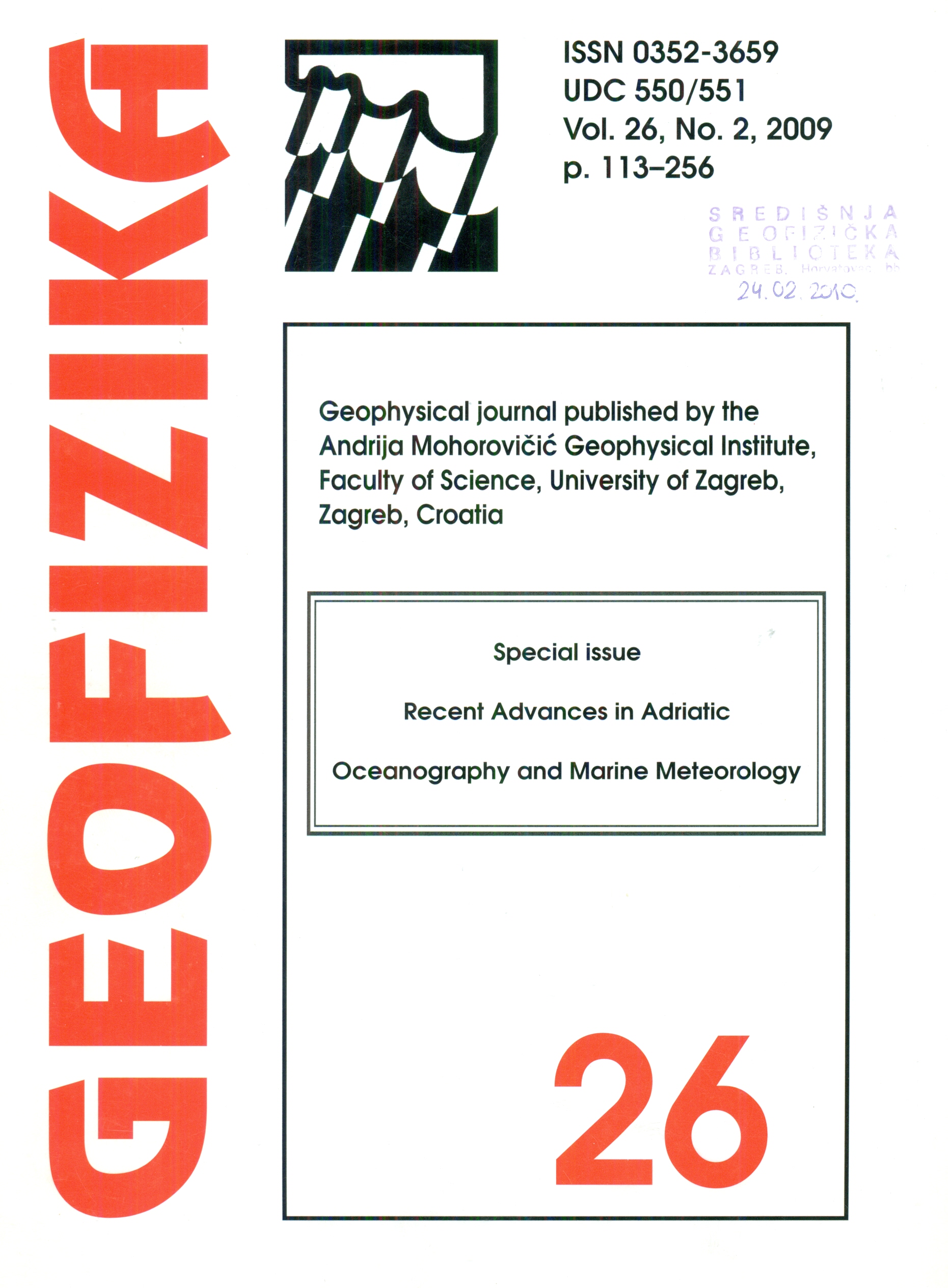An operational system for forecasting hypoxic events in the northern Adriatic Sea
Keywords:
anoxia, hypoxia, operational model, biogeochemical fluxes, Adriatic Sea, ROMS, marine forecastAbstract
The northern Adriatic Sea (NA), the northernmost region of the Mediterranean Sea, is affected by strong anthropogenic pressure (e.g., tourism, fisheries, maritime traffic, discharge from agriculture and industry), superimposed to a large river runoff. The consequent pressure exerted on the NA ecosystem either triggers or worsens massive mucilage insurgence, harmful algal blooms, eutrophication and even anoxic/hypoxic events. This work focuses on the anoxic/hypoxic events. During the summer-autumn period, the NA is often exposed to these events, which can be categorised as either coastal (relatively frequent south of the Po River delta during the summer) and offshore (rare, affecting wider areas). In order to improve our knowledge about these processes and to meet the needs of local governments and decision makers, an operational system for monitoring and forecasting anoxic and hypoxic events has been set up in the framework of the EU LIFE "EMMA" project. The system is composed of a meteo-oceanographic buoy; a numerical prediction system based on the Regional Ocean Modelling System (ROMS), including a Fasham-type module for biogeochemical fluxes; and periodic oceanographic surveys. Every day since June 2007, the system provides 3-hourly forecasts of marine currents, thermohaline and biogeochemical fields for the incoming three days. The system has demonstrated its ability to produce accurate temperature forecasts and relatively good salinity and dissolved oxygen forecasts. The Root Mean Square Error of the dissolved oxygen forecast was largely due to the mean bias. The system is currently being improved to include a better representation of benthic layer biogeochemical processes and several adjustments of the model. While developing model improvements, dissolved oxygen forecasts were improved with the removal of the 10-day mean bias.
Downloads
Published
Issue
Section
License
Copyright (c) 2021 Geofizika journal

This work is licensed under a Creative Commons Attribution-NonCommercial 4.0 International License.

